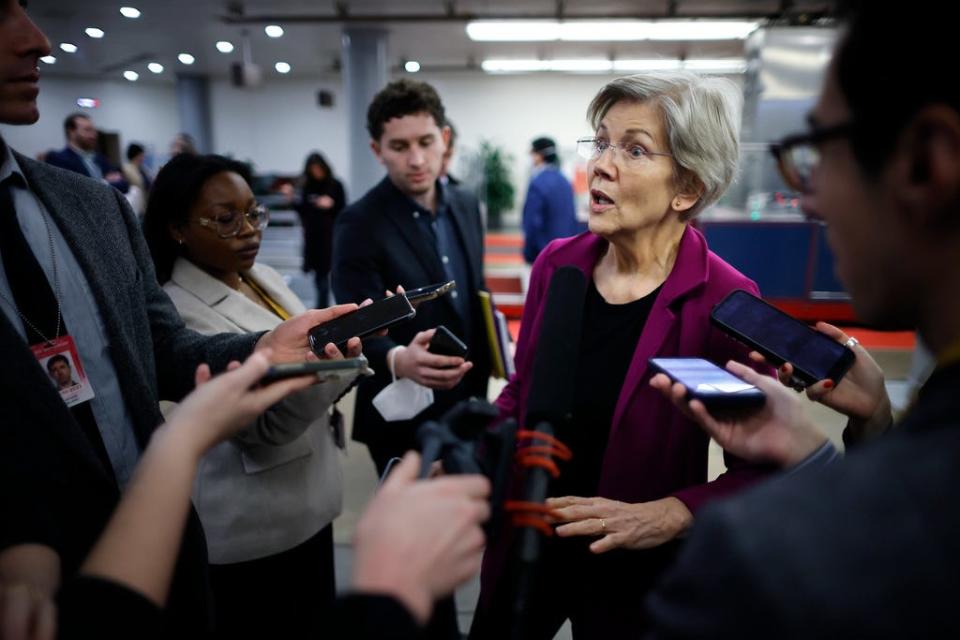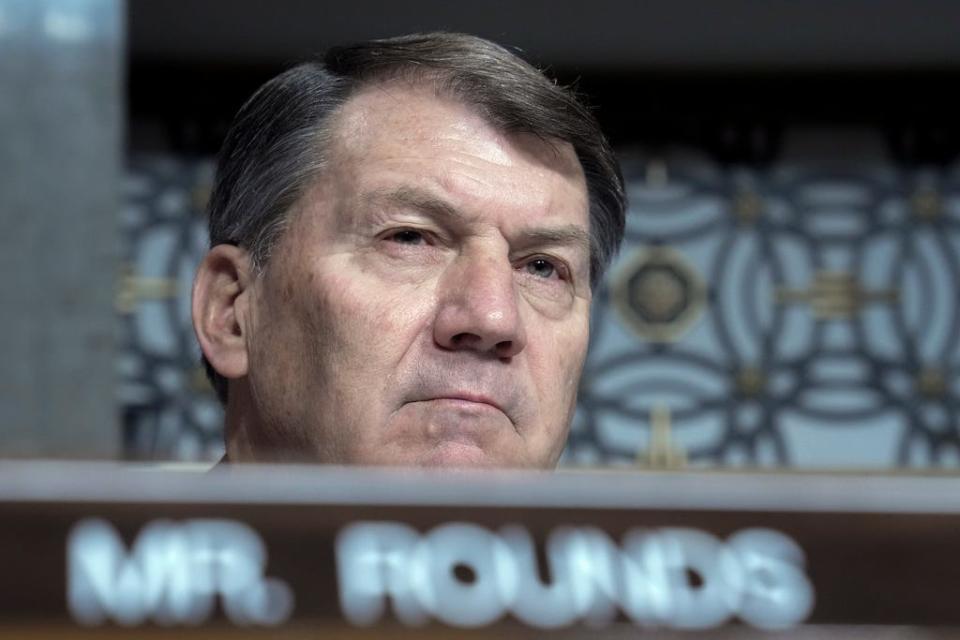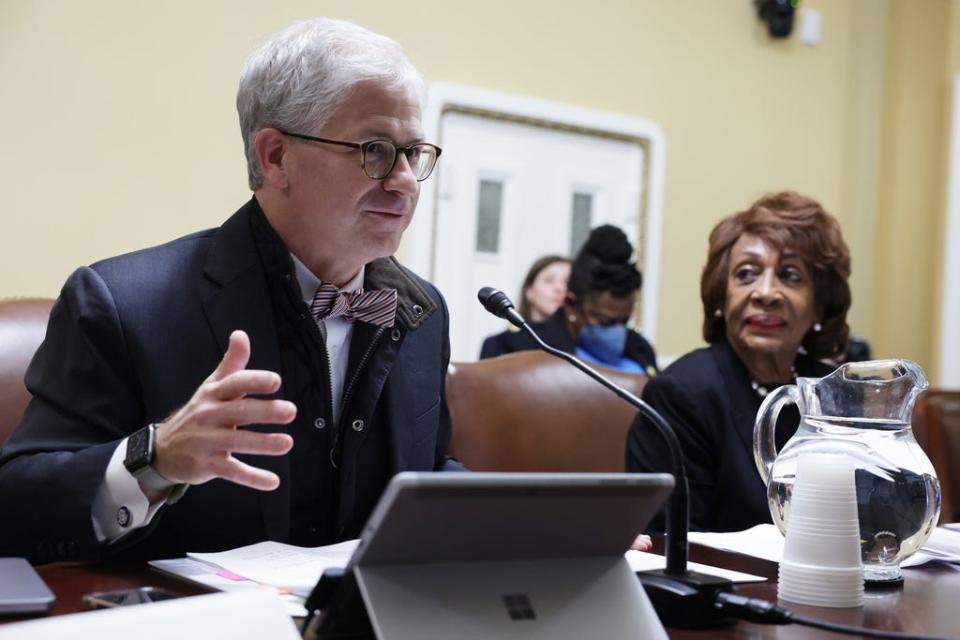In wake of SVB collapse, lawmakers float raising FDIC deposit insurance cap of $250,000
In the wake of the Silicon Valley Bank collapse, some lawmakers have floated raising the Federal Deposit Insurance Corporation's deposit insurance cap of $250,000 if another catastrophic bank failure occurs.
“I think that lifting the FDIC insurance cap is a good move,” Democratic Massachusetts Sen. Elizabeth Warren said Sunday on CBS's "Face the Nation," noting that the real question for her is: “Where’s the right number on lifting it?”
The possibility of raising the insurance cap could become a bipartisan endeavor. Republican South Dakota Sen. Mike Rounds said on NBC's "Meet the Press" that the $250,000 cap might “not be enough.”
SVB fallout: Yellen tells Congress that banking system 'remains sound,' savings 'remain safe'

White House defends rescue of SVB depositors
After SVB failed last Friday, the FDIC took over the bank to protect its depositors. Worries among depositors grew because the vast majority of FDIC’s deposits were above $250,000 and uninsured, the result of SVB’s close connections with wealthy tech startups and venture capital.
That is until the FDIC, the Federal Reserve and the Treasury Department announced that in the case of SVB, all depositors would have access to their money no matter if the deposits were above the $250,000 cap.
Stay in the conversation on politics: Sign up for the OnPolitics newsletter
Some GOP critics, such as Republican Missouri Sen. Josh Hawley, attacked the White House for the move, calling it “a bailout.”
But the White House argued that the government’s actions are helping only depositors and not the bank’s investors or management. White House press secretary Karine Jean-Pierre said the rescue plan “is not a bailout.”

Lawmakers say focus is helping depositors, not bank owners
Asked by NBC’s Chuck Todd whether it was OK to let a bank fail, Rounds noted that protecting depositors should be a priority over a bank's management and investors.
“When we talk about allowing a bank to fail, it’s one thing to say it’s OK to allow the owners of a bank to lose their resources.” Rounds said. “It’s another thing to say that the depositors should necessarily be allowed to lose their deposits.”
As for the $250,000 insurance cap, “perhaps that’s not enough,” Rounds said, adding that any discussion of raising the limit should take into account whether it is appropriate because of “inflation and so forth.”
Related: Silicon Valley Bank collapse explained in graphics

In the House, North Carolina Republican Rep. Patrick McHenry, chair of the House Financial Services committee, did not dismiss the proposition, telling CBS’s “Face the Nation” that he will later “determine whether or not we need to address the FDIC deposit level.”
Raising the insurance cap, Warren said, would focus on protecting small businesses from massive bank failures such as what happened with SVB.
“Small businesses need to be able to count on getting their money to make payroll, to pay the utility bills. Nonprofits need to be able to do that,” Warren said.
This article originally appeared on USA TODAY: In wake of SVB collapse, lawmakers float raising FDIC insurance cap

 money
money 